|
Email / CV / Google Scholar / Github / LinkedIn I am a 1st year PhD student in Computer Science at the University of Toronto, where I work at the CHAI Lab, advised by Prof. Alex Mariakakis on sensing and machine learning for healthcare. |
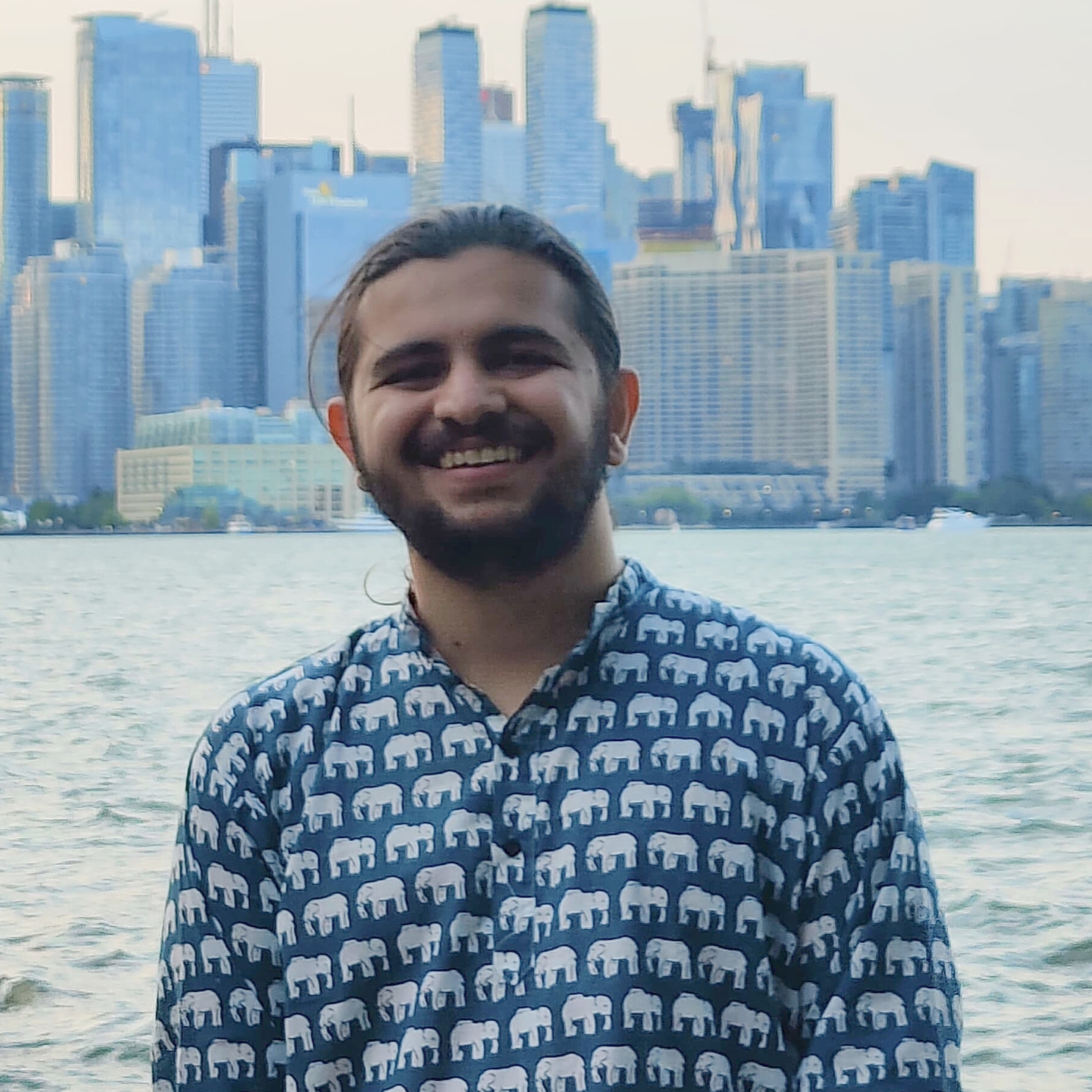
|
|
Before joining UofT, I was a Predoctoral Research Fellow advised by Dr. Mohit Jain and Dr. Nipun Kwatra at the Technology and Empowerment (TEM) Group at Microsoft Research, India where I worked at the intersection of Ubiquitous Computing, Computer Vision and Healthcare. Specifically, I worked on developing low-cost smartphone-based patient diagnostic solutions for resource-constrained settings. | |
|
Prior to joining MSR, I completed my bachelors in Computer Science from BITS Pilani, Goa. During my undergrad, I had the pleasure of working with some amazing researchers at:
During my bachelor's, I explored diverse research domains, including Nonlinear Dynamics and Chaos, Quantum Computation, ML4Health, and Software Engineering. Ultimately, I decided to focus on healthcare, driven by an interest in developing low-cost, automated methods for patient diagnostics and monitoring disease progression. I aim to devise novel sensing methods to enable new diagnostic capabilities and monitoring tools. Additionally, given the success of deep learning in healthcare, I am particularly interested in developing data-efficient and label-efficient techniques for medical image analysis. |
|
Research |
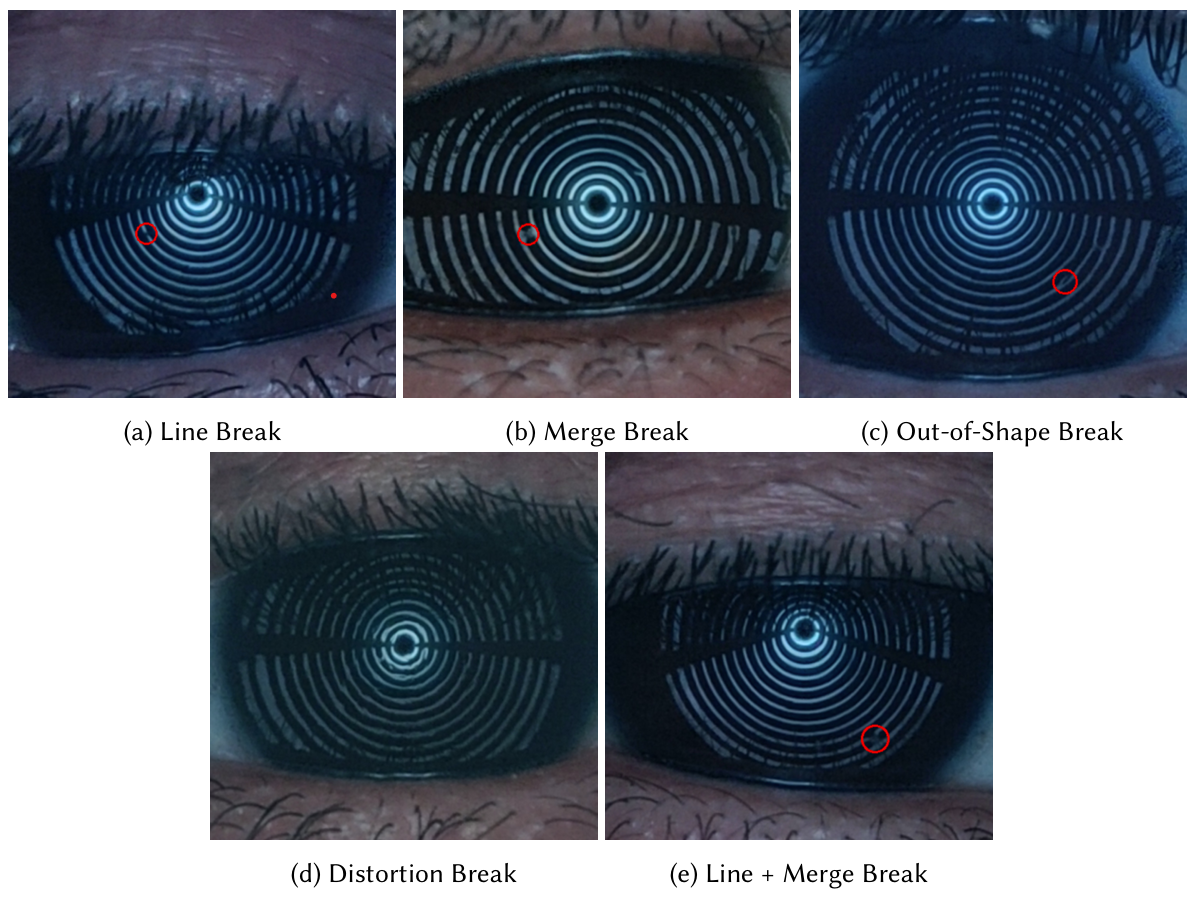
|
ACM IMWUT/ UbiComp '25 Vaibhav Ganatra, Soumyasis Gun, Pallavi Joshi, Anand Balasubramaniam, Kaushik Murali, Nipun Kwatra and Mohit Jain Paper / Github Dry Eye Disease (DED) is an eye condition characterized by abnormalities in tear film stability. Clinical tests for diagnosing DED are invasive and subjective. We propose DEDector, a low-cost, smartphone-based, non-invasive DED screening tool. Upon evaluation on 46 patient eyes, DEDector achieved a sensitivity of 77.78% and specificity of 82.14% in detecting DED. |
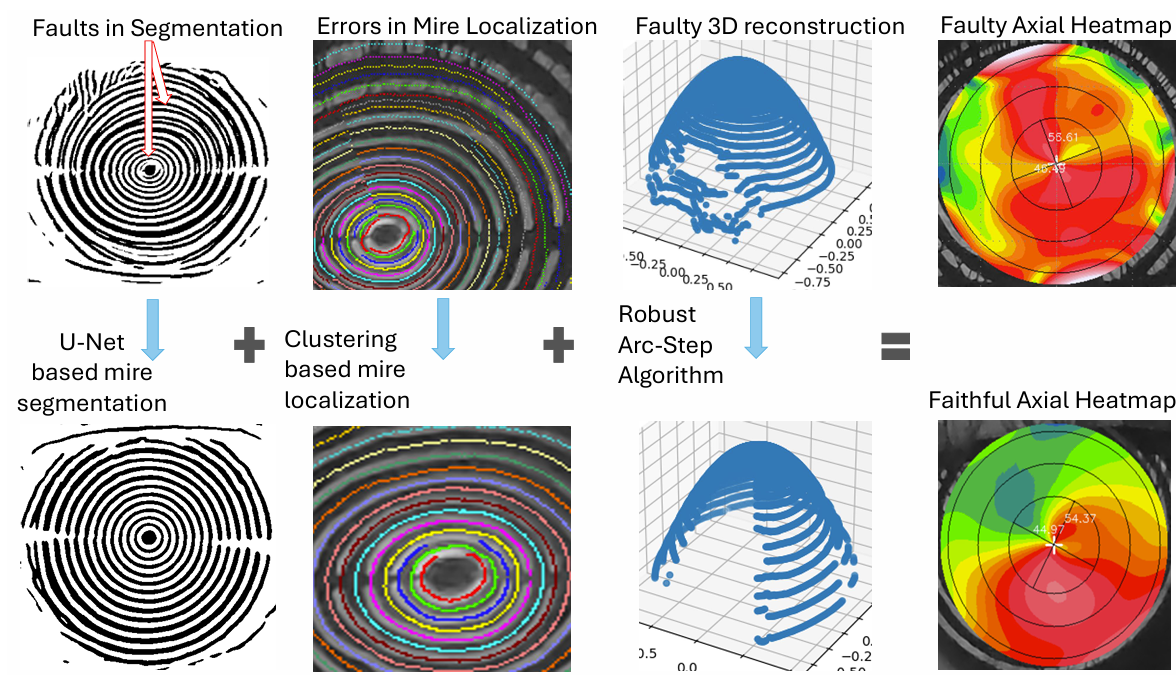
|
IEEE WACV '25 Vaibhav Ganatra, Siddhartha Gairola, Pallavi Joshi, Anand Balasubramaniam, Kaushik Murali, Arivunithi Varadharajan, Bellamkonda Mallikarjuna, Nipun Kwatra and Mohit Jain Paper / Github SmartKC, a smartphone-based corneal topographer for keratoconus detection often underestimates the corneal curvature in severe keratoconus. We propose SmartKC++, a series of methodological improvements over SmartKC. Evaluation on 303 patient eyes reveals a 7.7% improvement in the accuracy of detecting severe keratoconus. |
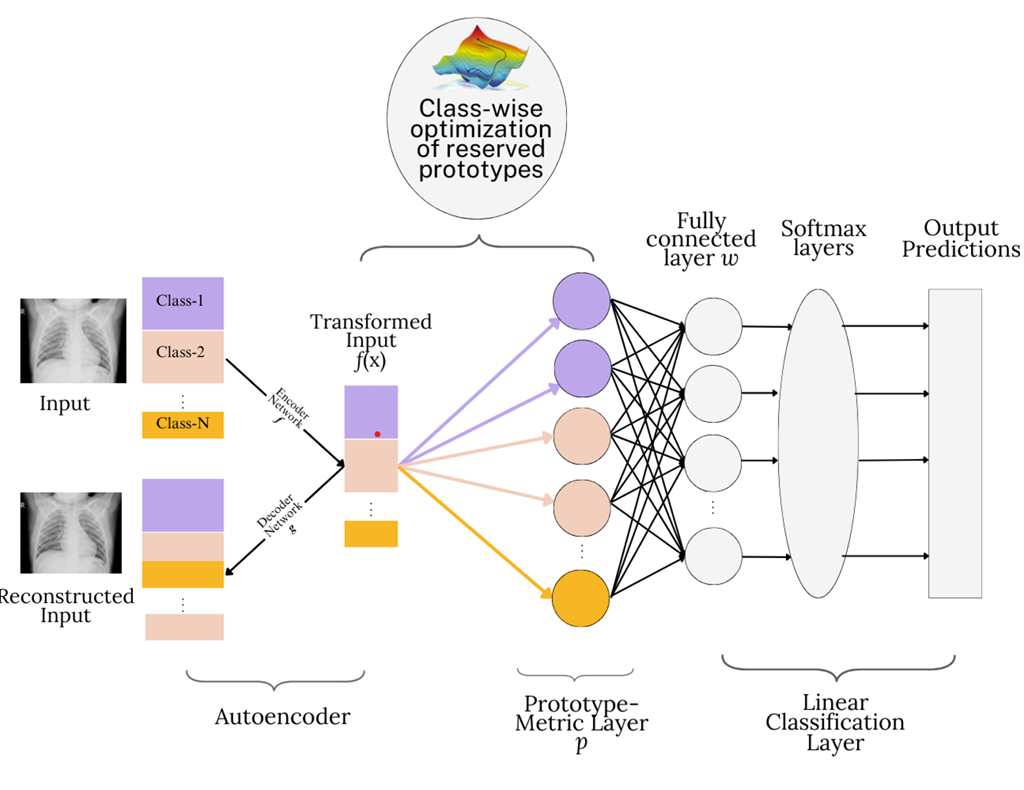
|
MLHC '24 Vaibhav Ganatra and Drishti Goel Paper / Github Medical datasets are often small and imbalanced. Deep learning models trained on medical datasets need to be interpretable to enhance human trust. We propose PRECISe, Prototype-Reservation for Explainable Classification under Imbalanced and Scarce-Data Settings. PRECISe achieves an accuracy of ~87% in detecting disease from chest x-rays upon training on 60 images only. |
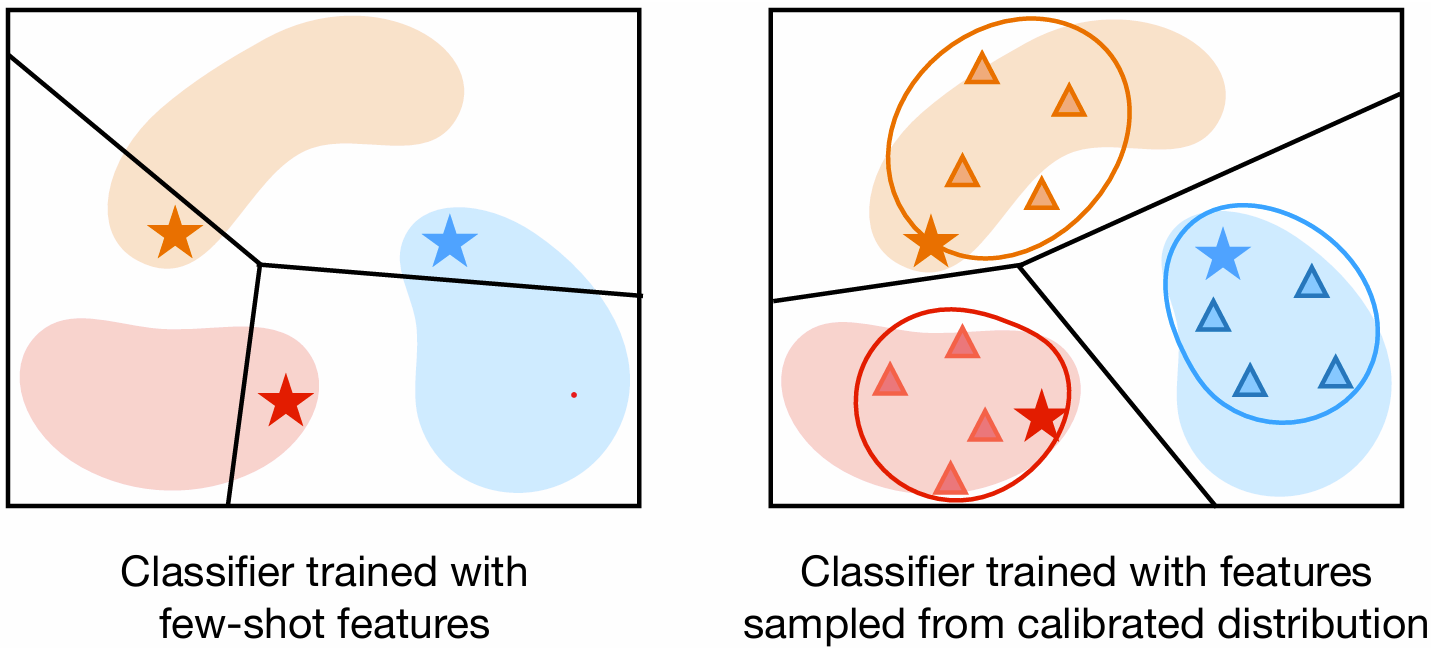
|
VIPriors Workshop @ ICCV '23 Vaibhav Ganatra Paper / Github Recent Few-shot learning methods make use of representation learning techniques to adapt models to unseen classes. I propose a mechanism of gaussian sampling in the representation space using a log transformation to shrink long tails. Evaluation on benchmark datasets indicates superior performance to existing methods. |
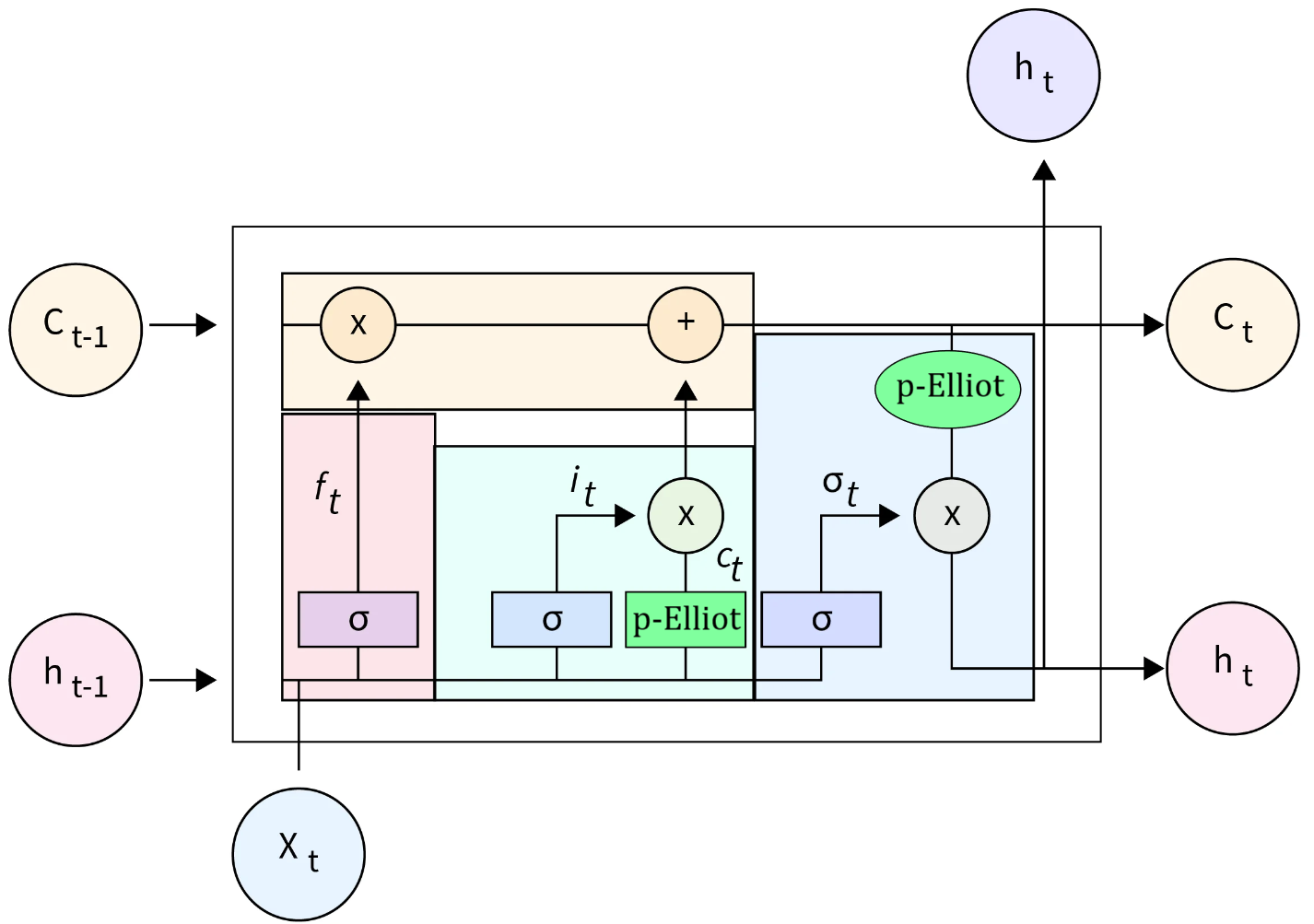
|
ICONIP '22 Abhijeet Swain, Vaibhav Ganatra, Snehanshu Saha, Archana Mathur and Rekha Phadke Paper / Github Predicting the future blood glucose levels in Type-1 diabetic patients is an essential problem to avoid fatalities. We introduce p-LSTM, a novel LSTM architecture utilising the parametric-Elliot activation function. Combined with the use of causal features, p-LSTM reduces the prediction error from 18.27% to 6.04%. |
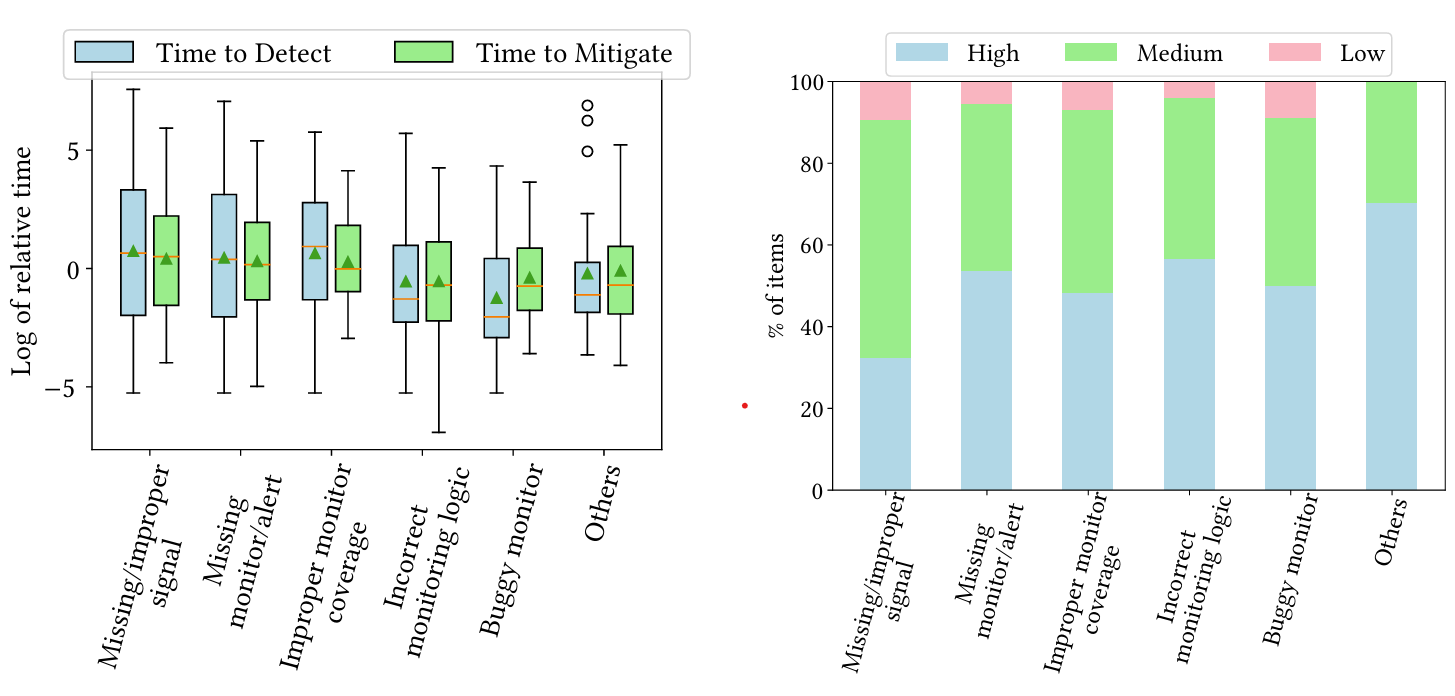
|
ESEC/FSE '23 Vaibhav Ganatra, Anjaly Parayil, Supriyo Ghosh, Yu Kang, Minghua Ma, Chetan Bansal, Suman Nath and Jonathan Mace Paper Improper monitoring of cloud services can lead to delays in detection and mitigation of production incidents, which can be extremely expensive in terms of customer impacts. We conduct an extensive empirical study to uncover the major causes of missing cloud incidents, their impact and recommend monitoring practices to enhance reliability of cloud services. |
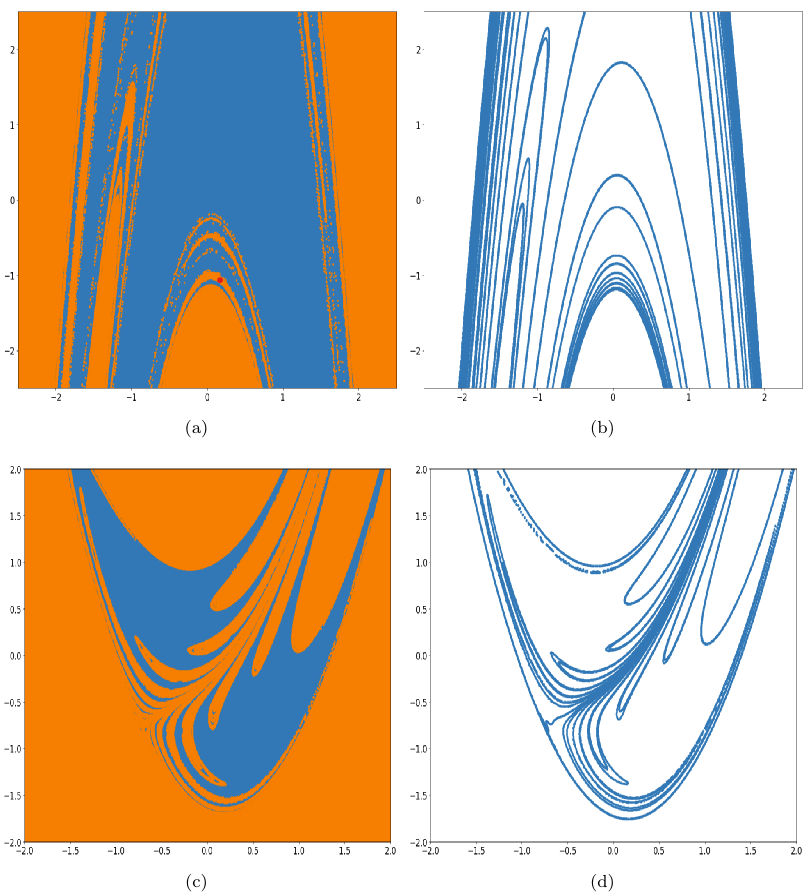
|
IJBC (International Journal of Bifurcation and Chaos) '22 Vaibhav Ganatra and Soumitro Banerjee, Paper Sketching the stable manifolds of saddle fixed points in two-dimensional systems is difficult when they are non-invertible. We present a new algorithm to compute the stable manifold of 2-dimensional systems without their inverse and show its effectiveness on multiple nonlinear systems. |